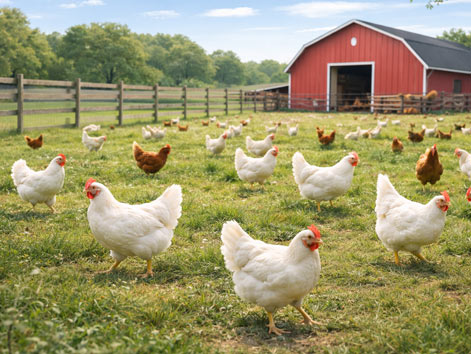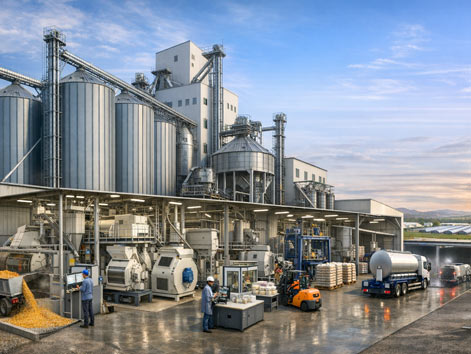Blog
Should a Farmer Choose Contract Farming or Stay Independent?
By Stanley Kaye, M.B.A. Agrotop Business Development
Broiler Farm – An investor or farmer planning to build a broiler farm must first decide whether to operate independently—buying inputs and selling finished birds on the open market—or to become a contract grower for an integrator.
Sometimes, the decision is straightforward: banks are often more willing to finance farms backed by a secure production contract with a major integrator. In other cases, a farmer may prefer the autonomy and potentially higher margin per bird from operating independently.
However, farmers often overlook a key fact: while margins may be higher on paper for independent farms, contract farmers typically achieve far greater production volumes—and thus potentially higher total income, with less risk.
The article summarized below presents findings from a recent study in Indonesia, comparing outcomes between contract and non-contract broiler farms. While local conditions vary by country, the study is valuable in highlighting a methodology for comparison and pinpointing the key factors that should guide a farmer’s choice.
Broiler Farm Objective:
The study aimed to compare the technical and economic performance of contract broiler farms versus independent (non-contract) farms. Researchers surveyed 180 farms: 77 operating under contract and 103 independent, all located in Banten Province, Indonesia—a tropical region with significant broiler production.
Key Results & Interpretation
- Technical Efficiency
Contract farms had significantly higher technical efficiency (average 89.3%) compared to independent farms (68.9%). This means contract farms used resources like chicks, feed, and labor more effectively to produce meat. - Production Volume
The average contract farm produced around 19.4 tons of chicken per cycle—nearly five times more than the 3.9 tons produced by the average independent farm. - Input Management
Contract farmers received day-old chicks, feed, vaccines, and vet support directly from the integrator, reducing operational complexity and improving health outcomes. - Market Risk
Contract farmers benefited from guaranteed buyback agreements at fixed prices, protecting them from market fluctuations that independent farmers face. - Biosecurity and Mortality
Better vaccine coverage and protocol compliance among contract farmers contributed to lower mortality rates and improved performance. - Farmer Autonomy
Independent farmers had full control but bore higher financial and operational risks. Contract farmers sacrificed some flexibility for predictable outcomes
Takeaway
The study concludes that for new or risk-conscious farmers, poultry farming contract offers superior efficiency, higher production volume, and lower market exposure. These advantages make contract farms more appealing to banks and investors.
Independent farming remains viable, especially for experienced operators with market access—but carries greater financial risk and lower technical performance on average.
Nugroho, E., Suryani, D., & Santoso, P. (2023). Comparative analysis of contract farming effect on technical efficiency of broiler chicken farms in Banten Province, Indonesia. Journal of World Poultry Research, 13(2), 45–58. https://doi.org/10.1234/jwpr.2023.13.2.45
Title: Comparative Analysis of Contract Farming Effect on Technical Efficiency of Broiler Chicken Farms in Banten Province, Indonesia
Published in: Journal of World Poultry Research, 2023



